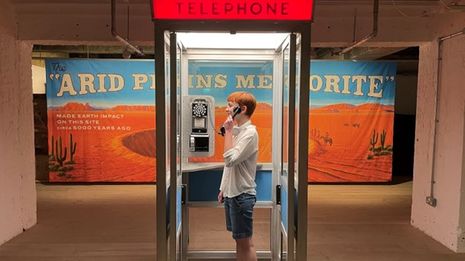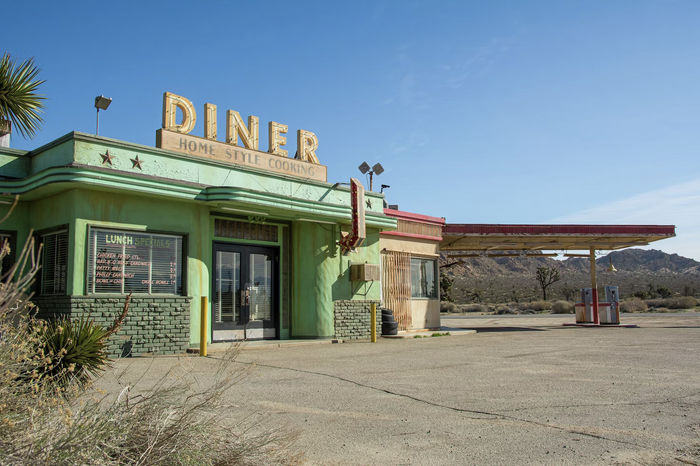Wes Anderson – ranked!
To celebrate the release of his new series of short films on Netflix, Sam Allen reflects on Wes Anderson’s filmography

11) Bottle Rocket (1996)
It’s reassuring to know that even the best of the best had a rocky start. Bottle Rocket is the cinematic equivalent of going on a Hinge date with a man who thinks he’s really funny, but really isn’t: it feels far too long (despite only being 91 minutes), in place of laughter, it produces a few nose exhales at most, and it’s pretty much devoid of feeling. It’s interesting to spot glimmers of what would later become Anderson’s recognisable style, but that’s about the only positive.
10) Moonrise Kingdom (2012)
If any of Anderson’s films fits the (to my mind, almost always unfounded) ‘all style and no substance’ criticism that frequently gets levied at him, it’s this one. It tells a sweet story of young love between two social outcasts, and is visually and musically gorgeous as always – but the storyline just isn’t as complex or engaging as some of his others, and it ends feeling slightly like a wasted opportunity.
9) The Life Aquatic with Steve Zissou (2004)
A world ahead of number 10, The Life Aquatic is an absurd but moving story about grief, fatherhood, and jaguar sharks. Bill Murray is possibly my favourite actor of all time, and he shines here, in a leading role. This one loses a few points due to a rather annoying performance from Cate Blanchett, but it gains most of them back for Sue Jorge’s glorious Portuguese David Bowie covers.
8) The Darjeeling Limited (2007)
The Darjeeling Limited shares The Life Aquatic’s themes of grief and unconventional families, but the charisma of some of Anderson’s best regulars – Owen Wilson, Jason Schwartzman and Adrien Brody – is enough to bump it up the list. This story of three brothers trying to heal their relationships with each other as they travel across India may be sprawling and slightly choppy, but it’s certainly never boring.
7) Fantastic Mr. Fox (2009)
Anderson’s first Dahl adaptation, and a classic from most people’s childhoods, this still holds up incredibly well. Wes manages to inject his usual creativity into his first animated project, insisting on taking his actors to a real farm and having them ride on real tractors while recording their characters’ voices. The cosy colour palette and upbeat soundtrack make this film feel like a warm hug on a rainy day, and as autumn approaches, I feel like yet another rewatch is due already.
6) Isle of Dogs (2018)
Perhaps controversially, this is my favourite of Anderson’s two stop-motion animation films. It may not have the same nostalgia attached to it as Fantastic Mr. Fox, but it makes up for it with its inventiveness and its clever use of allegory. After all, this is not just a simple adventure story about talking dogs, but also a potent exploration of political resistance and the dangers of marginalising certain communities. The world-building and characterisation of each and every dog is impeccable, with Wes’ genius lying in his choice to keep the central canine story incredibly simple, while also allowing the more complex human-focused subplot to work its magic too.
5) The French Dispatch (2021)
Well, here I am, an aspiring journalist reviewing a film in a student newspaper about what it means to be a journalist; if anything, you might be surprised this one isn’t higher. The French Dispatch is an absurdly witty and fast-paced anthology film which blurs the lines of genre, tone, and, at times, even medium. Anderson uses the newspaper format to tell four distinct stories, the final of which may be noticeably weaker… but not for a minute can you be sure of what’s coming next.
4) The Grand Budapest Hotel (2014)
This might be Anderson at his most symmetrical, pastel-coloured, and eccentric, but I don’t intend that as a criticism by any means. The film moves like a well-oiled machine, and I would happily have almost every shot framed as a poster on my bedroom wall. Ralph Fiennes gives one of my favourite performances of all time as the eccentric concierge of a stately hotel, and, on this rewatch, I found myself smiling from start to finish (that is, of course, when I wasn’t tearing up). The plot gets stranger and more expansive by the minute, but if you can keep up, it’s a treat the whole way through.
3) Rushmore (1998)
My two favourite Wes Anderson collaborators – Bill Murray and Jason Schwartzman – compete for the attention of a first-grade teacher, and what follows is one of the most feel-good, laugh-out-loud hilarious films I have ever seen. An 18-year-old Schwartzman makes surely one of the greatest acting debuts of all time, crafting an astoundingly idiosyncratic and instantly recognisable character. Only Anderson’s second offering, it lacks some of his stereotypical features; but still manages to feel distinctly like one of his films – it also might just be his most rewatchable.
2) The Royal Tenenbaums (2001)
I’ve only managed to watch this one twice because it floors me every time, and I take at least a week to recover. It’s no secret that Anderson knows how to create utterly heartbreaking characters, but he does it best here. In a dysfunctional (to say the least) family of misunderstood misfits, there is guaranteed to be at least one who will strike a chord with anyone watching. The core message of this film, in my eyes, is that there is some lingering sadness in absolutely everyone, and that the only way we can hope to heal it is with human connection. It’s a story of familial love, romance, and the pain of loneliness, perfectly demonstrating the depth of Anderson’s understanding of the human experience.
1) Asteroid City (2023)
Rewatching Anderson’s filmography in chronological order has cemented my belief that Asteroid City is a perfect culmination of the many key ideas he has been toying with for his whole career. It explores what it means to grieve, to make art, to be a part of a family, to be an outcast, and, perhaps most aptly, what it means to be a human being in a time of immense change. Jason Schwartzman gets another chance to shine in a lead role, supported by Anderson’s most star-studded ensemble cast yet, including newcomers like Tom Hanks and Steve Carell. In a time when TikTok is full of soulless parodies of his work, and amidst increasing fears that A.I. could become a substitute for real art created by real people, Anderson has crafted the perfect response: “you can’t wake up if you don’t fall asleep”. In other words, you can’t understand yourself without first letting go, you can’t make art without personal sacrifice, and you can’t create anything of substance without authenticity.
Wes Anderson’s latest project, The Wonderful Story of Henry Sugar, along with three other short films, are available to stream on Netflix now.
 Features / Should I stay or should I go? Cambridge students and alumni reflect on how their memories stay with them15 December 2025
Features / Should I stay or should I go? Cambridge students and alumni reflect on how their memories stay with them15 December 2025 News / Dons warn PM about Vet School closure16 December 2025
News / Dons warn PM about Vet School closure16 December 2025 News / Cambridge study finds students learn better with notes than AI13 December 2025
News / Cambridge study finds students learn better with notes than AI13 December 2025 News / SU reluctantly registers controversial women’s soc18 December 2025
News / SU reluctantly registers controversial women’s soc18 December 2025 News / News In Brief: Michaelmas marriages, monogamous mammals, and messaging manipulation15 December 2025
News / News In Brief: Michaelmas marriages, monogamous mammals, and messaging manipulation15 December 2025









